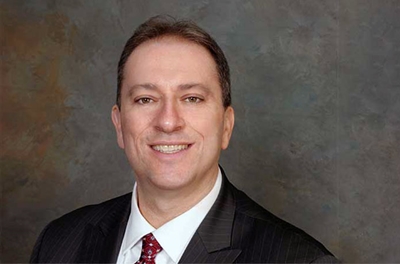Building a Better Auditor: Intuition in Auditing
Blogs David J. O'Regan Jun 13, 2023

Many auditors experience flashes of intuitive insight. You may recognize the indicators. You are gazing at screens crowded with a mass of conflicting information, or at heaps of jumbled, haphazard paperwork. Your heart is beating a little faster than usual. The problems seem insurmountable. And then it happens: You are seized by a spark of inspiration. A clutter of extraneous detail falls away.
Somewhere below the threshold of consciousness, knowledge coalesces with experience to provide you with a spontaneous shortcut to the problem’s solution. Such moments are startling. Somehow, we just know we are right. However hard it is to articulate this knowledge, we feel it in our bones. We subsequently undertake a range of painstaking audit tests only to find — usually to our delight — that our intuitive insight was correct.
If all this sounds familiar, you have experienced a moment of expert intuition. It’s not necessarily a mystical process. Like most of what goes on in our brains, expert intuition is a form of “heuristic” thinking — an unconscious cognitive ability, operating like a kind of autopilot, that provides snap judgments. So, can these problem-solving shortcuts open the door to more efficient auditing? Can we dispense with some of our time-consuming, detailed audit tests if we can be confident about the conclusions of our heuristic thinking? Unfortunately, no. Heuristic reasoning is not always correct, and auditing requires more persuasive techniques than intuition in the analysis of evidence.
The first drawback of intuition is its dubious reliability. Our snap judgments are vulnerable to inaccuracy because they may originate from deeply held misconceptions. Regrettably, there is no rapid way to differentiate between reliable and unreliable heuristic insights. Some defenders of the value of heuristic thinking argue that we rely heavily on intuition for some of the most important decisions of our lives — purchasing a house, taking a new job, and choosing a marriage partner. But heuristic insights provide an insufficient basis for how we handle audit evidence.
Snap judgments are neither necessary nor sufficient for auditing purposes. Auditing’s methodologies are founded on the abstract, enduring features of logic. For instance, for a population of data which is too large for us to review in total, we use statistical testing to extrapolate the characteristics of representative samples to the entire population. Statistical sampling is a method of inductive logic that provides auditors, not with certain conclusions, but with probabilities of accuracy. (In statistical inference there is always the possibility of error through sampling risk.) Put simply, statistical sampling provides levels of persuasiveness that intuitive insights cannot match. Intuition offers, at best, degrees of plausibility rather than probability.
Auditors rely on logical inference because it is the only reliable way to reach persuasive conclusions in the evaluation of evidence. But expert intuition is not worthless: it might guide some of our auditing efforts by suggesting avenues for exploration, and by generating hypotheses for further analysis. It is often involved in the generation of fresh and creative ideas when we think “outside the box.” Expert intuition should not therefore be discarded from the auditor’s intellectual toolkit, but it is best viewed as a supplementary or background tool rather than as a primary technique. Admittedly, it is satisfying to see one’s heuristic thinking validated by detailed audit testing — but without that validation we are on shaky ground.


